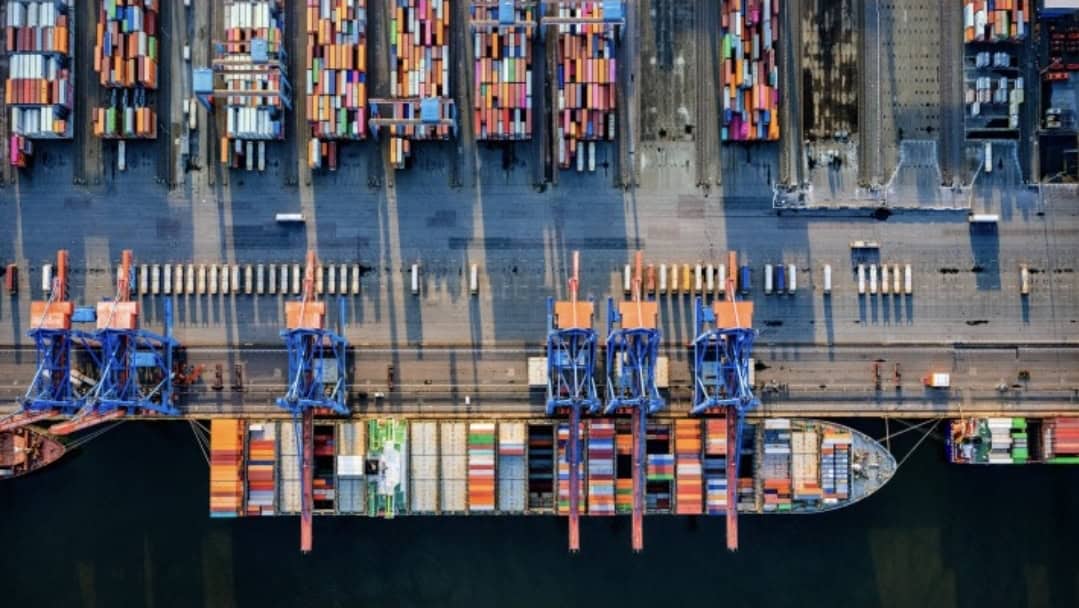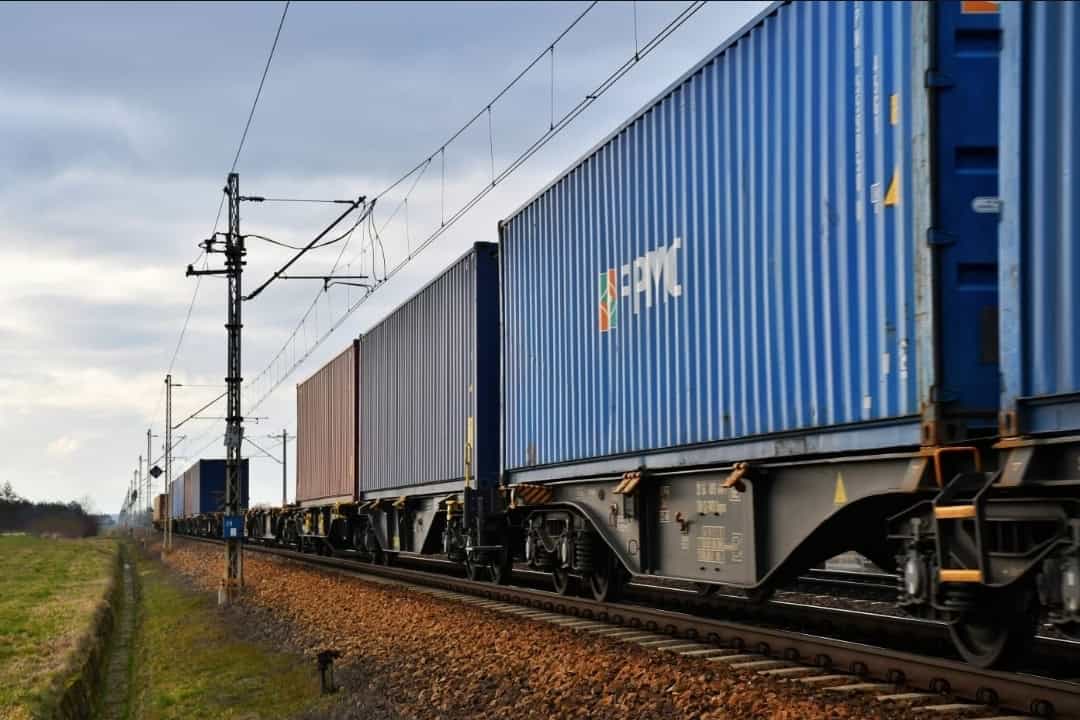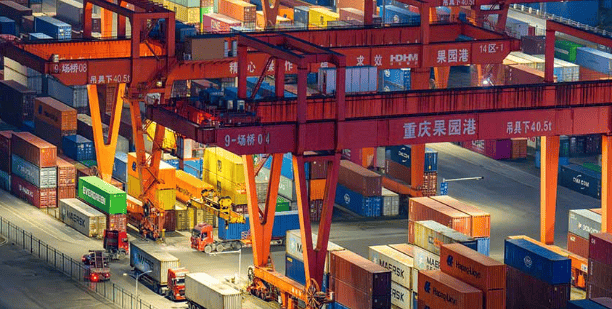Polish State Railways (PLK S.A.) and the Port of Gdańsk Authority S.A. have signed an agreement on expanding the access infrastructure to the deep-water cargo terminals of the Port of Gdańsk located on Stogi Island. The planned investment is strategic for the development of the port, and thus for the Polish economy.
Rail is the most efficient, safe, and environmentally friendly mode of transporting goods. Consistently increasing its share in freight transport is one of PLK S.A.’s priorities.
The agreement signed with the Port of Gdańsk Authority S.A. concerns the preparation of documentation for expanding the rail and road access infrastructure to the current and planned deep-water terminals in the North Port in Gdańsk.
“There is no need to convince anyone of the key role that seaports play in the development of the Polish economy. To make them more competitive, we already need to plan further investments, including those related to improving capacity on railway lines. That is why I am pleased about the agreement between Polish State Railways and the Port of Gdańsk Authority,” said Arkadiusz Marchewka, Deputy Minister of Infrastructure.
The project is strategically important for strengthening the economy and national security by increasing the logistics potential of the Port of Gdańsk and the capacity of the rail lines managed by PLK S.A. In 2024 alone, the Port of Gdańsk handled over 355,000 rail wagons (counting only Port Authority contractors). Meanwhile, all rail transport leaving the deep-water part of the port currently relies on a single bridge.
“This agreement between the operator of the national railway network and the Port of Gdańsk is an example of successful cooperation and sound planning of infrastructure investments essential for freight transport,” added Piotr Malepszak, Deputy Minister of Infrastructure.
Jacek Karnowski, Deputy Minister of Funds and Regional Policy, emphasised that next year PLN 200 billion in EU funds will be available.
“The Ministry of Infrastructure is probably the largest ministry in terms of absorbing these funds,” he added. “Not only from the Polish allocation but also from CEF (Connecting Europe Facility).”
Railway access for ports!
Dorota Pyć, President of the Port of Gdańsk, has repeatedly stressed the need for a second bridge or tunnel leading to the port island. This is where the specialised deep-water terminals are located, responsible for more than 80% of the port’s cargo throughput. Facilities such as Naftoport, Gaspol, and the North Port play a key role in Poland’s energy security, while the activities of Baltic Hub constitute a strategic pillar of Poland’s economic and logistics development, strengthening Gdańsk’s position as one of the most important ports on the Baltic Sea.
“The rapidly expanding North Port needs new railway infrastructure — additional tracks, sidings, and increased capacity at the North Port station. The current network is already becoming a limiting factor in our development. Ports cannot grow if separated from the rail network. That is why the development of intermodal connections is one of the pillars of our new strategy. Today’s agreement with PLK is not just a plan — it is a concrete response to the challenges facing us and the entire Polish logistics sector,” said Dorota Pyć.
The investment — including new bridges or tunnels — will improve railway traffic within the Port of Gdańsk and in its hinterland. It will include the construction or modernisation of port and access infrastructure.
“We are fully aware of the importance of rail transport in the daily operation of Polish Baltic ports. That is why we plan and implement investments that improve capacity on routes to quays and ensure fast, efficient, safe, and environmentally friendly rail transport,” said Marcin Mochocki, Board Member and Director of Investment Implementation at PLK S.A. “It is crucial that the beating heart of the Polish economy — our seaports — is connected to the economic bloodstream, which is the PLK railway network.”
The ceremony was also attended by Aleksandra Dulkiewicz, Mayor of Gdańsk.
“I am very pleased that an alternative access route in and out of the port will be built. It will relieve the port island, a unique place that is already changing before our eyes. Future changes must be planned sustainably — on the one hand, we must take care of the strategic security of Gdańsk and Poland, and on the other, give residents and visitors reasons to continue loving the port island,” emphasised Aleksandra Dulkiewicz.
Three stages of the investment
The cooperation between PLK S.A. and the Port of Gdańsk Authority S.A. will begin with a feasibility study (Stage I, 2026–2027). In 2028, work on the design documentation is scheduled to begin (Stage II). This will enable the launch — by 2034 — of the investment’s implementation (Stage III), covering the railway infrastructure associated with the expansion of the Port of Gdańsk. The project includes the modernisation of existing railway lines, their electrification, and the construction of new rail sections to support the “Improvement of rail and road access to current and future deep-water terminals in the North Port” programme. Construction works will begin once funding and administrative approvals are secured.
Greater rail capacity for ports in the Tri-City
Ongoing and planned PLK S.A. investments on railway lines leading to the ports of Gdańsk and Gdynia aim to increase their freight capacity. Between 2019 and 2024, rail access to both ports was upgraded using over PLN 3 billion from the CEF “Connecting Europe” instrument. As a result, more trains — longer and heavier — can reach the quays, carrying more goods.
Last year, PLK S.A. began modernising railway line No. 201 (Bydgoszcz–Tri-City), crucial for enhancing the Gdynia port’s potential. In September this year, a tender was announced for the design and construction of works for the “Increasing capacity on the Tczew–Gdynia corridor: Pszczółki–Pruszcz Gdański section” project. The construction of an additional track will improve capacity on the main route out of the Tri-City — including access to the Port of Gdańsk — and separate freight and commuter traffic from long-distance services. Completion is planned for 2030.



